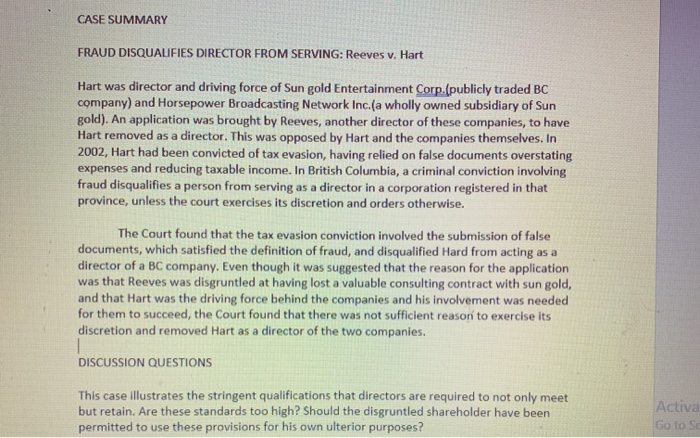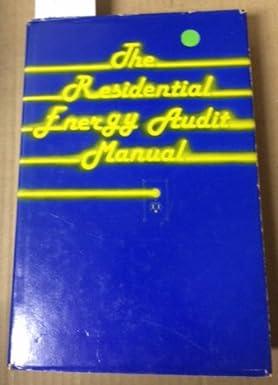CASE SUMMARY FRAUD DISQUALIFIES DIRECTOR FROM SERVING: Reeves v. Hart Hart was director and driving force of Sun gold Entertainment Corp.(publicly traded BC company) and Horsepower Broadcasting Network Inc.(a wholly owned subsidiary of Sun gold). An application was brought by Reeves, another director of these companies, to have Hart removed as a director. This was opposed by Hart and the companies themselves. In 2002, Hart had been convicted of tax evasion, having relied on false documents overstating expenses and reducing taxable income. In British Columbia, a criminal conviction involving fraud disqualifies a person from serving as a director in a corporation registered in that province, unless the court exercises its discretion and orders otherwise. The Court found that the tax evasion conviction involved the submission of false documents, which satisfied the definition of fraud, and disqualified Hard from acting as a director of a BC company. Even though it was suggested that the reason for the application was that Reeves was disgruntled at having lost a valuable consulting contract with sun gold, and that Hart was the driving force behind the companies and his involvement was needed for them to succeed, the Court found that there was not sufficient reason to exercise its discretion and removed Hart as a director of the two companies. DISCUSSION QUESTIONS This case illustrates the stringent qualifications that directors are required to not only meet but retain. Are these standards too high? Should the disgruntled shareholder have been permitted to use these provisions for his own ulterior purposes? Activa Go to Se CASE SUMMARY FRAUD DISQUALIFIES DIRECTOR FROM SERVING: Reeves v. Hart Hart was director and driving force of Sun gold Entertainment Corp.(publicly traded BC company) and Horsepower Broadcasting Network Inc.(a wholly owned subsidiary of Sun gold). An application was brought by Reeves, another director of these companies, to have Hart removed as a director. This was opposed by Hart and the companies themselves. In 2002, Hart had been convicted of tax evasion, having relied on false documents overstating expenses and reducing taxable income. In British Columbia, a criminal conviction involving fraud disqualifies a person from serving as a director in a corporation registered in that province, unless the court exercises its discretion and orders otherwise. The Court found that the tax evasion conviction involved the submission of false documents, which satisfied the definition of fraud, and disqualified Hard from acting as a director of a BC company. Even though it was suggested that the reason for the application was that Reeves was disgruntled at having lost a valuable consulting contract with sun gold, and that Hart was the driving force behind the companies and his involvement was needed for them to succeed, the Court found that there was not sufficient reason to exercise its discretion and removed Hart as a director of the two companies. DISCUSSION QUESTIONS This case illustrates the stringent qualifications that directors are required to not only meet but retain. Are these standards too high? Should the disgruntled shareholder have been permitted to use these provisions for his own ulterior purposes? Activa Go to Se







